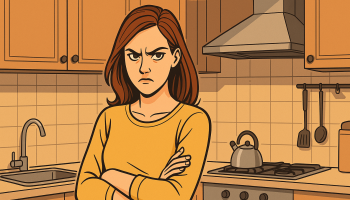Every time you connect to a public Wi-Fi or visit a website that doesn’t look quite right, you’ve probably thought about using a VPN. Virtual Private Networks are supposed to protect your privacy, but not all of them actually do. In fact, some VPNs do the opposite—they collect your data and sell it. So how can you tell if a VPN is truly safe or just pretending?
If you’re trying to figure out how to tell if a VPN is safe, you’re not alone. The market is full of flashy apps with bold promises, but many of them don’t hold up. Let’s break down the key ways to check if a VPN is actually protecting your data—or if it’s setting you up for a bigger problem.
1. Check the Logging Policy
A good VPN never keeps track of what you do online. That means no browsing history, no traffic logs, and no identifying information. This is called a “no-logs policy,” and it’s one of the most important signs that a VPN is safe.
But just saying “no logs” on a homepage doesn’t make it true. Some companies say they don’t log your data, but their privacy policies tell a different story. Always read the full policy to see if they collect timestamps, IP addresses, or other info that could link back to you.
2. Investigate the Company Behind the VPN
Who owns the VPN you’re using? This is something most people skip, but it can tell you a lot. Some VPNs are run by companies based in countries with weak privacy laws or surveillance agreements like the 5 Eyes or 14 Eyes alliances.
If a company is located in a country known for strict data laws—like Switzerland or Panama—it’s more likely to keep your info safe. You should also look for transparency reports or independent audits. These are signs that the company has nothing to hide and actually values your privacy.
3. Look for Independent Security Audits
One of the best ways to know how to tell if a VPN is safe is by checking for independent audits. These audits are usually done by third-party security experts who review the VPN’s technology, servers, and privacy policies.
When a VPN is open to audits, it means they’re confident in their systems. It’s even better when they publish the results. If you can’t find any mention of audits or outside reviews, that’s a red flag. It might mean the company doesn’t want you to know how their system really works.
4. Beware of Free VPNs That Sound Too Good
Let’s face it—free VPNs are tempting. But running a secure VPN service isn’t cheap. If you’re not paying for the service, the company has to make money some other way. That’s usually through your data.
Many free VPNs track your activity and sell it to advertisers or worse. They might even inject ads into your browser or slow down your connection. If you’re serious about privacy, free VPNs are rarely the safe choice.
5. See If the VPN Offers Secure Protocols
VPNs use protocols to create a secure connection between your device and the internet. Some of the most trusted protocols include OpenVPN, WireGuard, and IKEv2. If a VPN only uses older, outdated options like PPTP or L2TP, it’s a warning sign.
Secure protocols are like the locks on your front door. The stronger the lock, the harder it is for someone to break in. Make sure the VPN you’re considering uses modern, well-tested protocols and keeps them up to date.
6. Test for DNS and IP Leaks
Even if a VPN says it protects your data, you should test it. One way is by checking for DNS and IP leaks. These leaks happen when your real IP address or browsing requests sneak past the VPN and become visible to your ISP or other trackers.
There are free tools online that let you run these tests in seconds. If your VPN is leaking, it’s not protecting you properly. A good VPN should block all leaks, no matter what network you’re on.
7. Find Out What Kind of Encryption Is Used
Encryption is the core of VPN security. Most safe VPNs use AES-256 encryption, which is considered military-grade and is used by governments and banks. It scrambles your data so well that it’s nearly impossible for hackers to read it.
If a VPN doesn’t clearly list the type of encryption it uses, that’s a red flag. It either means the encryption is weak, or they’re hiding something. Always go with a VPN that explains its encryption in simple, honest terms.
8. Read the Privacy Policy Word for Word
A company’s privacy policy tells you what data they collect, how they store it, and whether they share it. Even if a VPN claims to be safe on the homepage, the fine print might say otherwise.
Look for vague terms like “we may share data with partners” or “we collect diagnostic data.” These are often signs that the company is collecting more than you think. The safest VPNs are the ones that are clear, simple, and stick to the point.
9. Research the App Permissions
Before installing any VPN app, check the permissions it asks for. If the app wants access to your contacts, photos, camera, or messages, ask yourself why. A VPN doesn’t need that kind of access to work properly.
Too many permissions can be a sign of tracking or shady behavior. Safe VPN apps ask for the bare minimum—just enough to create a secure connection without digging into your private life.
10. Look at User Reviews (But Be Smart About It)
Online reviews can be helpful, but not all of them are real. Some companies pay for fake positive reviews or bury the bad ones. Still, if you read enough reviews across different platforms, you’ll start to notice patterns.
If lots of people complain about ads, crashes, or privacy issues, pay attention. If the only reviews you find are overly perfect and sound robotic, that’s also a warning. A truly safe VPN usually has a balanced mix of honest feedback.
11. Confirm There’s a Kill Switch Feature
A kill switch is a must-have for any VPN that claims to be secure. It shuts off your internet if the VPN connection drops, so your real IP doesn’t get exposed. Without it, you could be leaking data without even knowing it.
Many good VPNs offer this feature, but not all have it turned on by default. Make sure the kill switch is available, easy to activate, and actually works during testing.
12. Watch for Ads and Pop-Ups Inside the App
Ads inside a VPN app are a major red flag. A safe VPN shouldn’t need to show you ads to make money. If you’re getting pop-ups, banners, or promotions every time you connect, the app is probably tracking your data for profit.
Real VPNs focus on security, not selling space to advertisers. Clean interfaces and simple user experiences are signs you’re using something trustworthy.
13. See If It Supports Anonymous Payments
Want to know how to tell if a VPN is safe and privacy-focused? Check if it accepts anonymous payment methods like cryptocurrency or prepaid cards. This shows the company respects your desire to stay private—even when you sign up.
If the only option is to pay with a credit card and hand over all your personal info, it might not be the best choice for privacy. The safest VPNs offer multiple payment options for a reason.
14. Test the VPN on Multiple Devices
Safe VPNs work across different operating systems—Windows, macOS, Android, iOS, Linux, and sometimes routers. If a VPN only works on one platform or lacks basic features on mobile, it could be a rushed product.
A VPN that truly protects your data should offer the same level of security everywhere. Try it out on more than one device and see if it holds up to your expectations.
15. Watch Out for Sudden Terms of Service Changes
Sometimes a VPN starts off safe but changes over time. They might get bought by a different company or update their terms to allow more data collection. Always keep an eye on emails or app updates that announce changes.
If a VPN updates its terms without clear explanation, that’s a problem. Safe companies explain changes in plain language and give you a chance to opt out or cancel.
Final Thoughts
There are a lot of VPNs out there that look good but are actually data traps. They promise security but secretly collect your info, track your habits, or worse. Knowing how to tell if a VPN is safe isn’t just helpful—it’s necessary in today’s digital world.
At Uncensor.io VPN, we believe privacy should be the default, not a luxury. That’s why we operate with a strict no-logs policy, modern encryption standards, and zero shady behavior. We don’t cut corners, and we never sell your data. If you’re tired of guessing who to trust, make the safe switch to BEZPODSLUCHU.PL—a VPN that actually respects your privacy.





